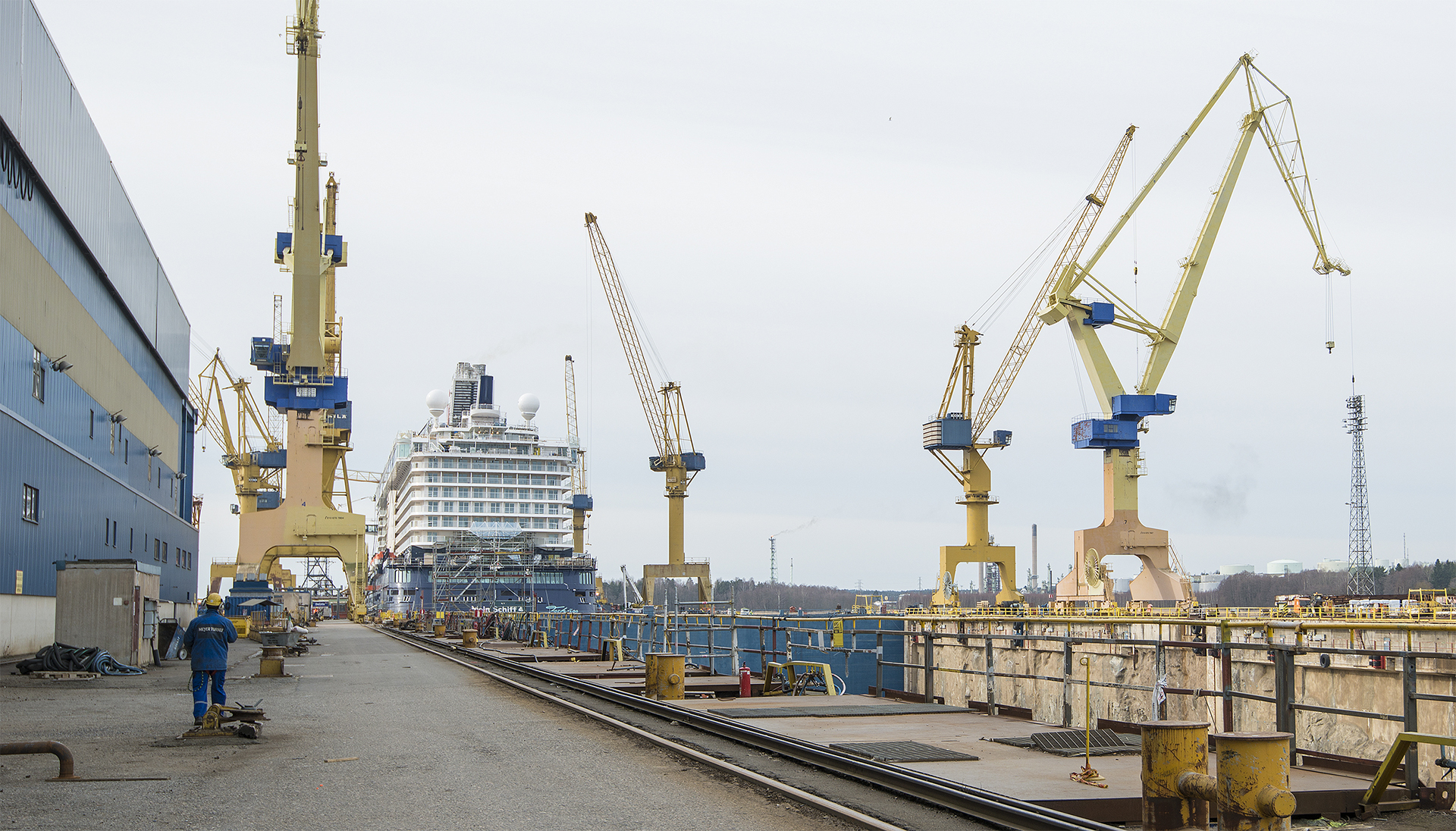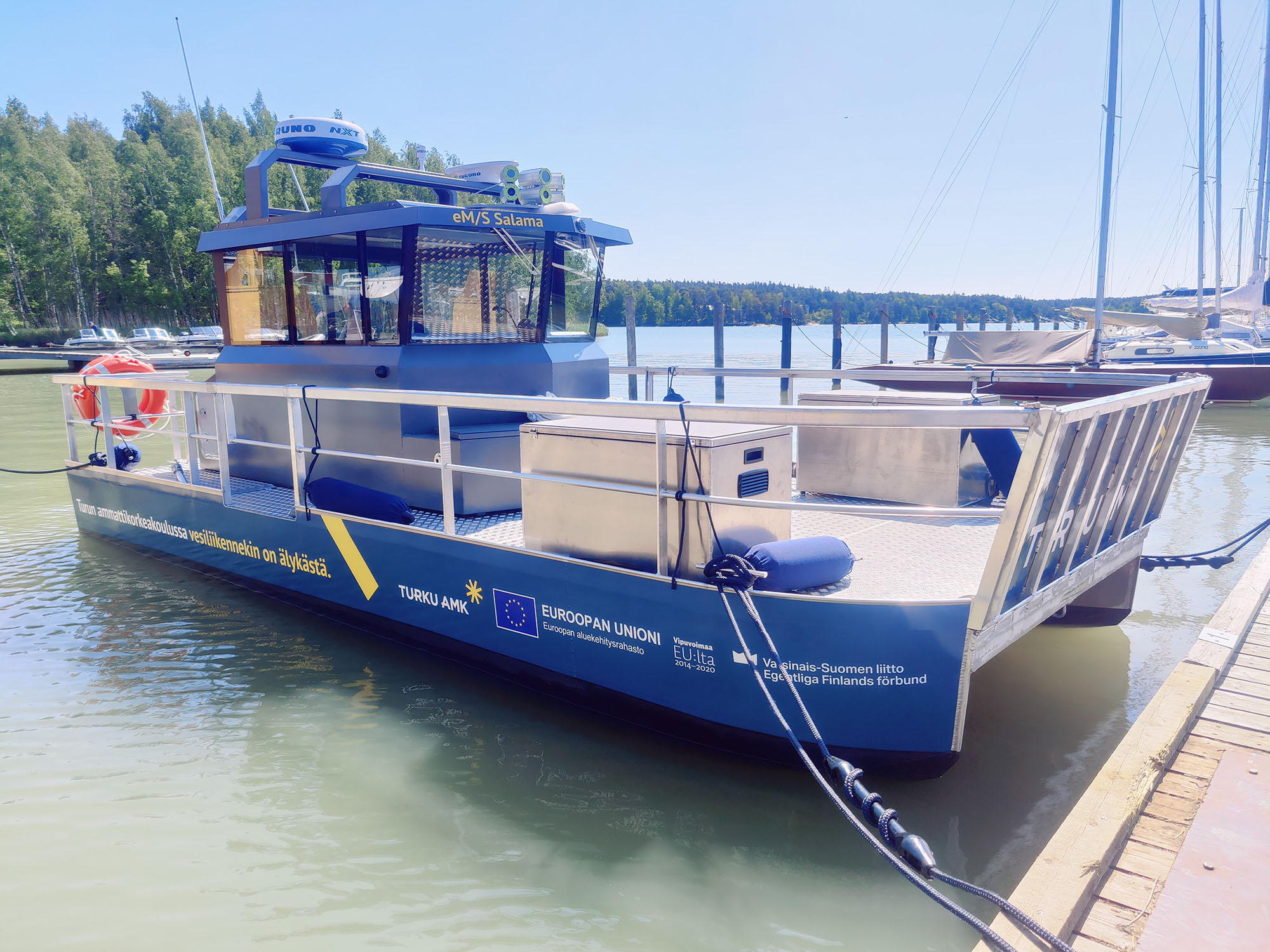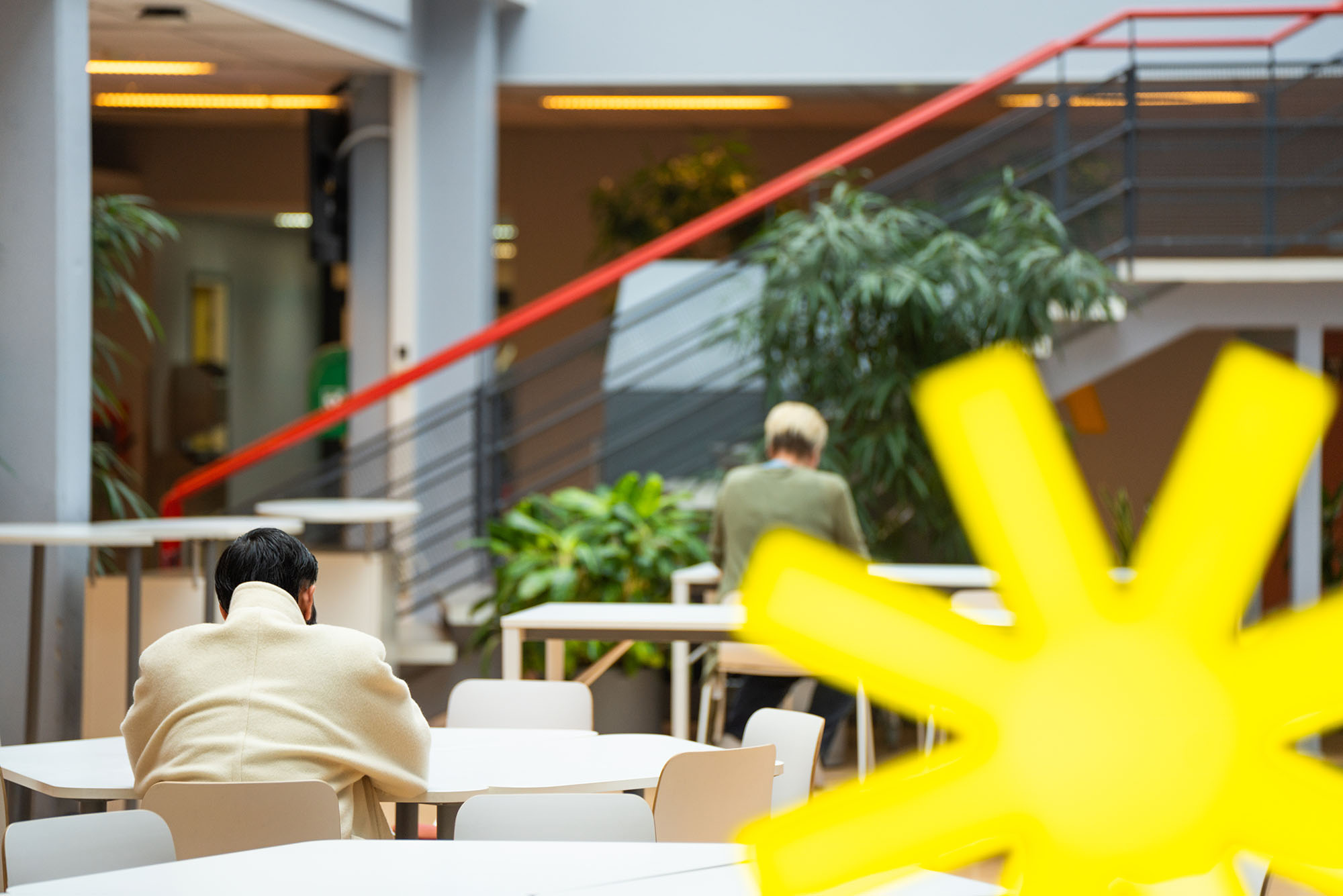Turku University of Applied Sciences’ project Sustainable Material Management Maturity Model (S4M) has received Business Finland’s co-innovation research funding as part of Meyer Turku’s NecOLEAP locomotive project programme.

Published:
Edited:
The research project will help to promote the shipyard’s objectives, which focus on reducing its carbon footprint through digitalisation and strengthening its competitiveness both in the Meyer Turku network and in the Finnish maritime cluster. The objectives of the S4M project are closely linked to NEcOLEAP’s main theme: the future drivers of shipbuilding.
The two-year S4M project has a research budget of €2.4 million and a total budget of around €6 million.
– Four research groups from the fields of management, sustainable development, ICT technology and logistics are participating in the project. The research funding is of great importance to the research professors and doctoral students working on the project,” says Heli Aramo-Immonen, senior lecturer and project leader of Turku University of Applied Sciences.
International cooperation and an advanced maturity model
S4M is an international research project involving seven European universities and six international Finnish companies. The project is developing the S4M maturity model, which will be used to analyse the sustainability of materials management and business competitiveness in a shipbuilding network that is part of a wider shipbuilding ecosystem. The aim is to identify areas for improvement across the subcontracting network, as successful improvements require long-term commitment from companies to the network.
The maturity model is used to assess and visualise the sustainable material activities and market positioning of the network of companies. The S4M will help identify company-specific developments that are a prerequisite for, among other things, the network’s successful sustainability reporting in line with the EU reporting obligations that will come into force next year. The development of the model requires a comprehensive understanding of the network actors and their capabilities, such as technological solutions, competences and material management processes.
Diverse case studies and digital solutions at the heart of development
The results of the S4M project will improve the environmental and cost efficiency of the entire supply network. The research project will analyse the performance of companies at different levels of the supply chain. The tools will include real-time material flow monitoring, optimisation of logistical processes and reduction of material waste. The companies will focus in different ways on issues such as material management, digitalisation and improving environmental performance. The S4M project will develop tailor-made digital solutions to promote sustainable materials management.
A model for sustainable development and community impact
The S4M project applies the Collective Impact (CI) model to the dissemination and exploitation of research results. This will enable the dissemination of information to the different actors in the network and support the GHG Scope 3 reporting requirements. In the future, the S4M maturity model will be scaled up to the wider shipbuilding ecosystem using the CI model.
For more information:
The article has been published on our previous website turkuamk.fi on 31.10.2024.
Read next
-
Press Release

Joint research infrastructure funding for Turku higher education institutions from the Research Council of Finland
The NEMESIS research infrastructure collects data related to the state of the environment and maritime safety in the archipelago. NEMESIS, a collaboration between three universities, enables long-term monitoring…
-
CasePress Release

1000 students from Turku University of Applied Sciences develop sustainable development solutions for organisations in Turku
In a new joint project between Turku University of Applied Sciences and the City of Turku, students are solving sustainability problems in companies and other organisations. Published: Edited:…
-
Press Release

Turku AMK develops more equal transport in the Turku region
The international project, led by Turku University of Applied Sciences, promotes more equitable and sustainable urban transport in Finland, Hungary, Greece, Italy, the Czech Republic and France. Transport…

